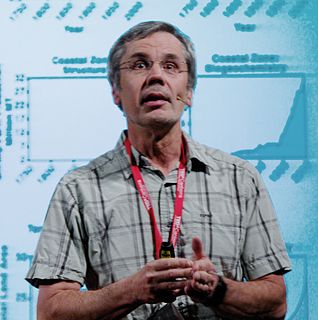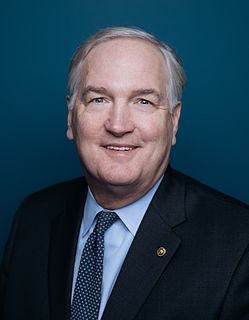A Quote by Lynn Good
Over the long term, we should develop and implement new technologies to capture and store coal's carbon emissions. We also must make our electric grid more resilient.
Related Quotes
There would be a cost for dumping carbon into our atmosphere and a cap on total emissions. The government must make a clear and firm decision - terminating the idea in our society it is free to pump infinite amounts of carbon into the air. Once that happens, private capital will flow even more aggressively into developing and deploying the alternative, less-polluting technologies.
Coal used to be a very dirty fuel but coal has become cleaner and cleaner over the decades. Clean coal now is quite clean. Clean coal now has the same emissions profile as natural gas. Clean coal can become cleaner still. We can take even more of the pollutants out of coal and I believe we should. Clean coal, I think, is the immediate answer to Canada's energy needs and the world's energy needs. There are hundreds of years available of coal supplies. We shouldn't be squandering that resource. We should be using it prudently.
For electric power generation, we are very optimistic about solar-thermal technology, and we’re intrigued by the potential of enhanced geothermal energy to replace coal-based power generation. Traditional carbon capture and sequestration-based coal power generation is somewhat unlikely to be competitive.
Some time ago we discovered the carbon cycle - a long-term set of chemical reactions that govern climates based on how much carbon is free in the atmosphere. At that point, it became clear that humans were affecting our environments far more profoundly than we realized. By releasing so much carbon and greenhouse gas into the environment, we're making long-term changes to every aspect of the natural world.
Carbon capture and storage, its commercial development.. is going to be the key to the future of coal. If it is successful commercially, then the Australian coal sector will be a center of prosperity and growth; if it's not successful then it won't be. I think in the long run it's as simple as that.
The transition from coal, oil, and gas to wind, solar, and geothermal energy is well under way. In the old economy, energy was produced by burning something - oil, coal, or natural gas - leading to the carbon emissions that have come to define our economy. The new energy economy harnesses the energy in wind, the energy coming from the sun, and heat from within the earth itself.


































